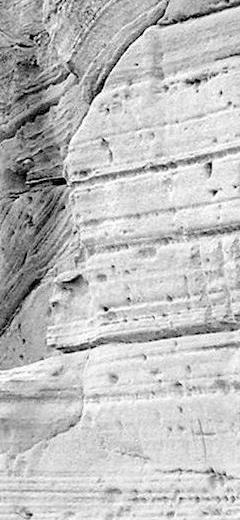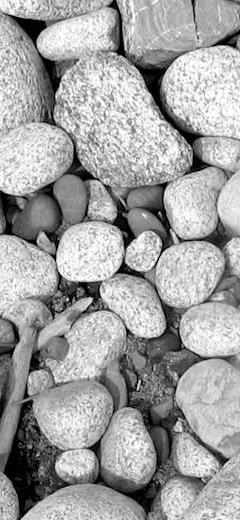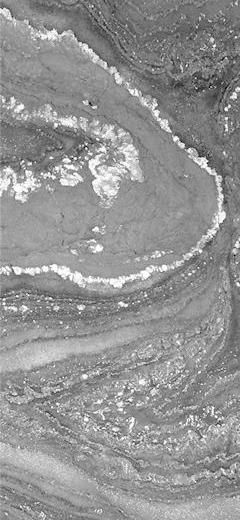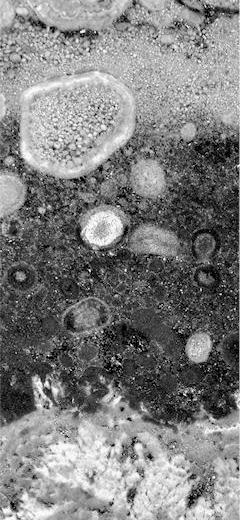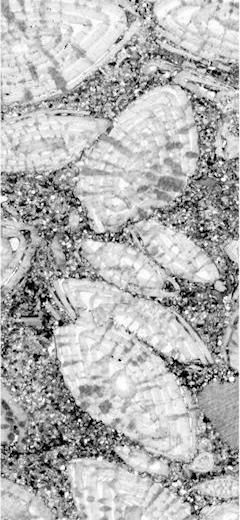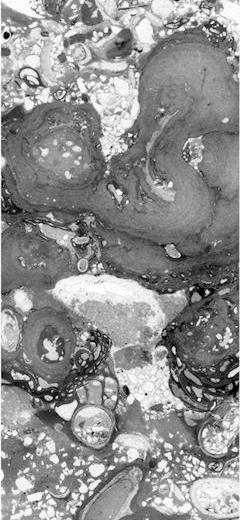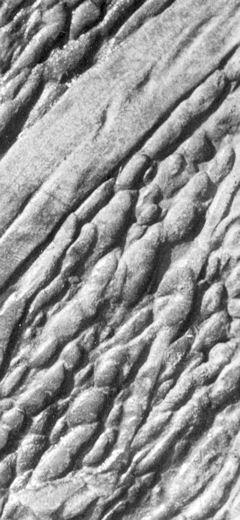ASGP (2011), vol. 81: 351–361
PETROGRAPHIC CHARACTERISTIC OF THE MIDDLE MIOCENE SEDIMENTS IN THE UKRAINIAN SEGMENT OF THE CARPATHIAN FOREDEEP
Marta KUBERSKA, Aleksandra KOZŁOWSKA & Paweł LIS
Polish Geological Institute – National Research Institute, Rakowiecka 4, 00-975 Warszawa, Poland, e-mails: marta.kuberska at pgi.gov.pl, aleksandra.kozlowska at pgi.gov.pl, pawel.lis at pgi.gov.pl
Kuberska, M., Kozłowska, A. & Lis, P., 2011. Petrographic characteristic of the Middle Miocene sediments in the Ukrainian segment of the Carpathian Foredeep. Annales Societatis Geologorum Poloniae, 81: 351–361.
Abstract: The Upper Badenian and Sarmatian strata from thirteen wells situated in the Ukrainian part of the Carpathian Foredeep were petrographically analysed. The studies were performed using a polarizing microscope (standard petrographic analysis, cathodoluminescence studies – CL), SEM and EDS ISIS. Moreover, the XRD was conducted, isotopic ratios of light isotopes of carbon and oxygen in carbonate cements determined, and porosimetric measurements performed on selected samples of sandstones. Claystones, mudstones and sandstones were distinguished among the studied rocks. The sandstones were examined in great detail. The following sandstone varieties were distinguished: unequal-grained, fine-, and rare medium-grained. They are classified as arenites and subarkosic, locally sublithic and quartz wackes. Quartz and feldspars (K-feldspars, plagioclases) are main components of the grain fabric of mudstones and sandstones. Rock fragments (of sedimentary, less common effusive rocks, individual fragments of granitoids and/or metamorphic rocks) occur in the sandstones, too. Micas (mainly muscovite), glauconite, rare bioclasts, fine plant remnants, and accessory zircons are present. The cement is composed of allogenic-and authigenic clay minerals (illite, smectite, chlorites, kaolinite), carbonates (Fe-calcite, dolomite, ankerite), authigenic quartz and, sporadically, authigenic feldspar and anhydrite. Effects of diagenetic processes, mainly of mechanical compaction, cementation, dissolution, and less significant replacement and alteration have been recorded in the sediments studied. The compaction and cementation have almost an equal influence on reduction of porosity and permeability of the analysed rocks. Abundant sandstone packages, however, display very good reservoir properties (porosity amounts to 30%, and permeability is over 200 mD).

